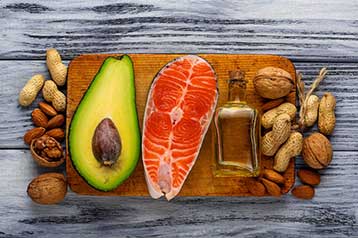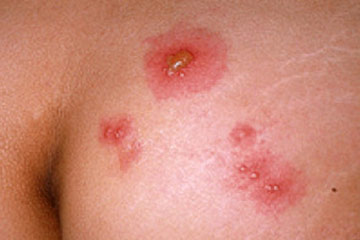What is Liposuction? | Who Performs Liposuction & Where is Liposuction Performed? | How can I find the right doctor for me? | When is Liposuction not for me? | What are the Alternatives to Liposuction? | Risks | Complications | Expect Before | Expect During | Expect After | Will I look the way I want after liposuction? | Know what makes you a poor candidate for liposuction | Know all the risks and procedure limitations | Understand all the answers to your questions about liposuction | Glossary
Liposuction
Glossary
Anesthetic - drugs that cause the loss of feeling or sensation.
Canula (or cannula) - a hollow pen-like instrument or tube used to draw off fluid.
Edema - swelling caused by large amount of fluid in cells or tissues.
Emboli - something that blocks a blood vessel. See embolism.
Embolism - the blocking of a blood vessel or organ by pieces of matter such as fat.
Emulsify - to break up into small pieces.
Epinephrine - a drug injected before liposuction to reduce bleeding during the procedure.
Infection - invasion by and multiplication of bacteria or microorganisms that can produce tissue injury.
Lidocaine - an anesthetic that may be injected in large amounts of liquid during liposuction.
Lipoplasty - another name for liposuction.
Liposuction - a usually cosmetic surgical procedure in which fat is removed from a specific area of the body, by means of suction.
Necrotizing Faciitis - a bacterial infection in which bacteria infect and kill the skin and underlying tissues.
Paresthesia - a change in feelings or sensation. May be an increase in feeling (pain) or a decrease in feeling (numbness).
Pulmonary embolism - pieces of fat may find their way into the blood stream and get stuck in the lungs during liposuction. This causes shortness of breath or trouble breathing.
Probe - see canula.
Sedative - a drug which helps a person to relax and may make them feel sleepy.
Seroma - a collection of fluid from the blood that has pooled at the liposuction site.
Skin necrosis - skin or underlying tissue dies and falls off.
Suction assisted liposuction - see liposuction.
Thrombophlebitis - inflammation of a vein caused by a blood clot.
Toxic Shock Syndrome - an infection caused by bacteria that release toxins into the body. This type of infection can occur after surgery if bacteria are accidentally introduced during the surgery.
Ultrasound assisted liposuction - a type of liposuction in which fat is first loosened by using an ultrasonic probe and then removed by means of suction.
Visceral perforations - organs may be punctured accidentally with the liposuction probe or canula during liposuction.
What is Liposuction? | Who Performs Liposuction & Where is Liposuction Performed? | How can I find the right doctor for me? | When is Liposuction not for me? | What are the Alternatives to Liposuction? | Risks | Complications | Expect Before | Expect During | Expect After | Will I look the way I want after liposuction? | Know what makes you a poor candidate for liposuction | Know all the risks and procedure limitations | Understand all the answers to your questions about liposuction | Glossary
US Food and Drug Adminstration
http://www.fda.gov/cdrh/liposuction/what.html






